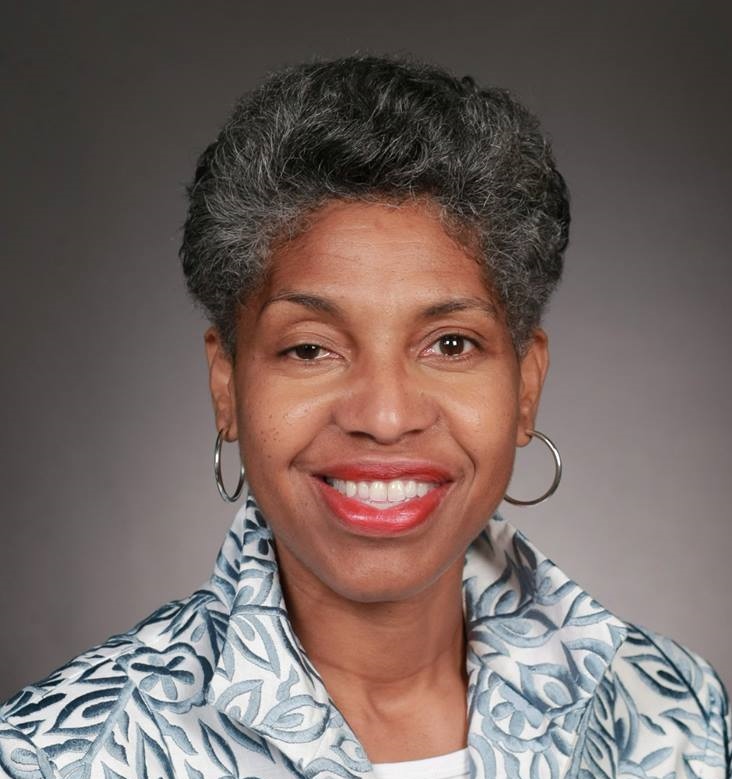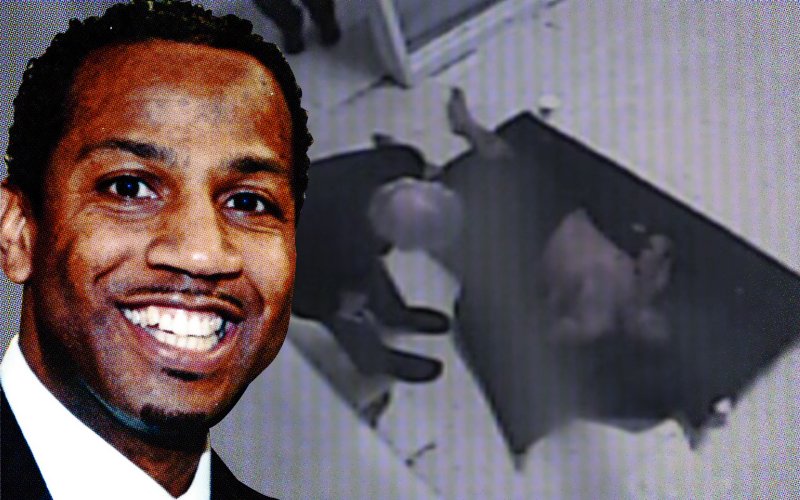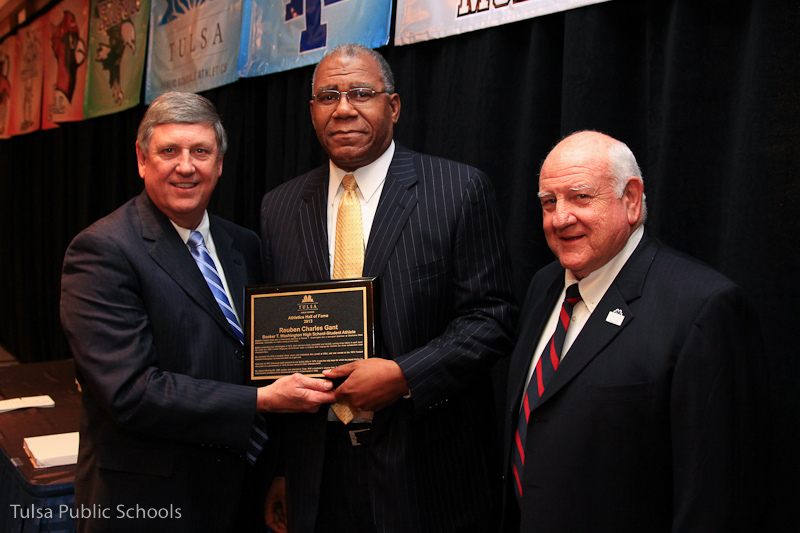
Oklahoma Eagle Newswire
OKLAHOMA CITY – On the fifth attempt, the state House voted Tuesday to modify the allocation of proceeds from the state lottery. The Representatives also sanctioned still more court fees, and endorsed a fee increase on mining operations in Oklahoma.
The legislators also authorized remediation for students who receive a low score on a college entrance exam, supported modification of financial literacy courses, approved a dyslexia task force, endorsed substitution of a language course for a computer course, and voted to require the State Department of Education to publish an annual report on emergency teaching certificates issued by the agency.
Lottery ‘Tweak’ Projected to Produce More $$ for Schools
Finally, on the fifth try, legislation to lift a mandated cap on the state lottery was approved in the House of Representatives.
The first $50 million of net proceeds from the lottery would be earmarked for the Oklahoma Education Lottery Trust Fund, under House Bill 1837.
Existing state law requires 35% of the net proceeds from the lottery to be dedicated to education. Removing that mandate would enable more money to be allocated to prizes, which in turn would generate more lottery ticket sales and thus more money for education, said Rep. Leslie Osborn, author of the bill.
The Lottery Commission estimates that HB 1837 could produce an extra $110 million for educational programs over the next five years, said Osborn, R-Mustang.
HB 1837 provides that net proceeds which exceed $50 million would be devoted to pre-kindergarten through third-grade reading initiatives, and to science, technology, engineering and mathematics (STEM) programs.
The legislation also stipulates that the annual maximum percentage for administrative costs of operating the lottery may not exceed 3% of sales.
HB 1837 cleared the House on a 70-25 vote Tuesday and now advances to the Senate. The bill was endorsed by 47 Republicans and 23 Democrats, and was opposed by 24 Republicans and one Democrat.
Former state Rep. Mike Shelton, D-Oklahoma City, introduced similar legislation for four consecutive years, 2013-2016, and all of his bills died in House committees: once in Rules and three times in Appropriations and Budget.
HB 1837 “still has to continue through the legislative process,” Shelton, who “termed out” of the Legislature last year, said Tuesday. “I hope, for the good of our schools, that the bill passes the Senate, too, and is signed into law.”
Shelton praised Osborn for “helping me when I ran my bills; I owe her a debt of gratitude,” he said.
“I just wish that politics hadn’t interfered with my bills all those years. It cost us millions of dollars that could have helped our school kids and our classroom teachers.”More Court Fees Proposed
The House narrowly approved a proposal to impose two new civil court fees.
House Bill 2306 by Speaker Charles McCall, R-Atoka, would create a $25 fee for each subpoena issued in a civil case. Last year 2,600 subpoenas were issued in civil cases in Oklahoma, court records reflect. Thus, House fiscal analysts estimated that $65,000 in additional revenue would be generated by HB 2306 for county court funds.
The bill also would create a $25 fee for filing a “motion to enter” in a civil case. The amount of revenue that would be generated by that proposed fee “is contingent upon the amount of motions filed,” House fiscal analysts reported.
Rep. Chris Kannady, R-Oklahoma City, who carried the measure on the House floor, said the proposed fees would not be applicable to small claims cases nor to victim protection orders.
Just to be certain, House Minority Leader Scott Inman made a motion to attach an amendment that would expressly decree that the fees proposed in HB 2306 would not extend to VPOs. The Republican-dominated House spurned the motion on a 22-62 vote.
Inman, D-Del City, pointed out that access to Oklahoma courts is growing progressively more expensive.
Rep. Meloyde Blancett, D-Tulsa, said the cumulative effect of court fees is “putting the system in favor of those who have financial resources, regardless of the merits” of their cases.
And Rep. Jason Lowe, a criminal defense attorney, said his clients and their families “go downtown, asking the state for help.” It is “just not right … for us to impose a fee for them to bring witnesses to court to protect them,” said Lowe, D-Oklahoma City.
Kannady, a practicing attorney, maintained that “it’s expensive” to operate Oklahoma’s courts.
It’s certainly expensive to use the courts, said Rep. David Perryman, who also is an attorney. Filing a small-claims petition costs “a couple of hundred dollars by the time you add in additional court fees and costs of service,” he said. A court summons requires a fee, getting the summons served costs a fee, and requesting a jury trial at the county courthouse requires the applicant to post a $349 fee, he said.
“Before you even start to talk about attorneys’ fees, you’re out several hundred dollars,” the Chickasha Democrat said. “All of these fees are an impediment to justice.”
HB 2306 passed in a bipartisan split vote, 51-42. The proposal was supported by 50 Republicans and one Democrat, and was opposed by 25 Democrats and 17 Republicans.
The bill now moves to the Senate.Raising Mining Fees
A measure that would increase the fee on the production of minerals other than coal mined in Oklahoma passed the House of Representatives in a split vote Tuesday.
House Bill 1844 would require operators of non-coal mining operations to pay the state Department of Mines a fee of one and one-fourth cents per ton of minerals they produce; the current fee is a penny per ton.
State statute defines “minerals” to mean limestone, gypsum, asphalt, clay, copper, granite, gravel, lead, marble, salt, sand, shale, chat, tripoli, caliche, volcanic ash and zinc, but not oil or gas “and any other mineral found naturally in a liquid or gaseous state.”
In response to a question from Rep. Brian Renegar, D-McAlester, Jim Rodriguez, executive director of the Oklahoma Aggregates Association (OKAA), told the House Appropriations and Budget Subcommittee on Natural Resources and Regulatory Services that the industry supports the measure.
“The appropriated amount going to the Department of Mines has been cut significantly over the past several funding cycles, and federal funds the department receives have been reduced, too,” Rodriguez said later. “The industry wants to ensure that the Department of Mines can operate in a reasonable manner. We want to support their operations, in order to protect workers and the state.”
The proposed fee increase will generate “around $188,000 to $200,000” per year, Rodriguez estimated.
The state Department of Mines was appropriated $775,772 by the Legislature for the current Fiscal Year 2017. That was 11.7% less than the agency was appropriated for FY 2016, and 22.26% less than the agency was appropriated 10 years ago, ledgers reflect. During that same period, revenue from agency fees increased 35%: from $850,000 in FY 2007 to $1,149,000 in FY 2017.
Production in Oklahoma of minerals other than coal totaled 78 million tons (primarily limestone, sand and gravel, granite, gypsum and clay) in 2015 (the latest year for which statistics are available), according to the state Department of Mines website.
The aggregates industry employs more than 3,500 people in Oklahoma, the OKAA reports. Its member companies produce more than 90% of the crushed stone and 70% of the sand and gravel consumed annually in Oklahoma, and OKAA producers export 15 to 25 million tons of aggregate materials each year for use in other states and countries, the organization says.
HB 1844 passed the House, 62-33. It was supported by 10 Democrats and 52 Republicans; opponents included 14 Democrats and 19 Republicans.
Now the bill will be referred to the Senate for consideration.School Credit Proposed for ‘World’ Languages
One credit of “world” language would count toward graduation in lieu of one credit of computer education, under House Bill 2156.
“World” language is a more appropriate term than “foreign” language, said Rep. Jadine Nollan, R-Sand Springs, author of HB 2156, because it encompasses not only foreign languages (such as Spanish) but also classical languages (Latin and Greek) and native languages (i.e., tribal languages such as Cherokee, Choctaw, etc.). As a general rule, a world language is spoken internationally, as a second language, by a large number of people; English is a world language, and so are French, Arabic and Chinese.
The bill passed the House, 86-6.
“I don’t think our students are getting enough computer exposure,” said Rep. George E Young Sr., one of those who opposed the measure. HB 2156 “seems to be a ploy to offer something less significant for the future,” the Oklahoma City Democrat said.Remediation Authorized
House Bill 1790 would authorize school districts to offer a remediation course for high-school students who score below a 19 on the American College Testing (ACT) exam or below an equivalent score (990-1020) on the SAT exam.
The bill, by Rep. Ed Cannaday, D-Porum, a retired school teacher/administrator, passed the House unanimously, 93-0. The measure now will be transmitted to the Senate, where it’s sponsored by Sen. Dewayne Pemberton, R-Muskogee, a retired educator.Dyslexia/Education Task Force
The House unanimously endorsed a measure to create a Dyslexia and Education Task Force that over the next year and a half would create a handbook that would serve as a guidebook for schools on intervention and identification of the reading disorder.
House Bill 2008 by Speaker McCall breezed through the House, 96-0, and will be referred to the Senate for consideration.
Dyslexia is characterized by trouble with reading despite normal intelligence. Different people are affected to varying degrees. Problems may include difficulties in spelling words, reading quickly, writing words, “sounding out” words in the head, pronouncing words when reading aloud, and understanding what one reads. Dyslexia can be managed through early identification, researchers say.
Two-thirds of Oklahoma fourth graders read below proficiency levels in 2015, records reflect; blame was attributed at least in part to suspected dyslexia.Teaching Students ‘Financial Literacy’
Personal financial literacy courses in public schools would include education about managing a bank account, rather than simply balancing a checkbook, House Bill 1694 provides. The legislation also would boost fees to underwrite the program.
Other areas of instruction include understanding interest, credit card debt, and online commerce; rights and responsibilities of renting/buying a home; savings and investing; planning for retirement; bankruptcy; banking and financial services; understanding the Free Application for Federal Student Aid; loans and borrowing money, including predatory lending and payday loans; understanding insurance; identity fraud and theft; charitable giving; understanding the financial impact and consequences of gambling; earning an income; and understanding state and federal taxes.
Fulfilling the requirements for a personal financial literacy “passport” is a requisite for achieving a high school diploma in Oklahoma.
Beginning with the 2020-21 school year, school districts “shall provide instruction in personal financial literacy to students during grades 9 through 12,” HB 1694 mandates. Until then, financial literacy will continue to be taught in grades 7 through 12.
The bill also dictates that beginning with the 2020-21 school year, teachers of financial literacy will be required to undertake “ongoing professional development training” in the subject.
HB 1694 would increase from 5¢ to $1 the fee assessed against each lender on every deferred deposit loan it issues. The legislation stipulates that 75¢ of the levy would be earmarked for a new Personal Financial Literacy Education Revolving Fund and the other 25¢ would be deposited in the Consumer Credit Counseling Revolving Fund.
The proceeds deposited in the financial literacy fund would be used by the State Department of Education “for the purpose of developing and providing guidelines, materials, resources, including online curriculum, training and professional development of teachers in the area of personal financial literacy…”
The House endorsed the measure, 88-10, and transmitted it to the Senate.Tracking Emergency Certifications
The State Department of Education would be directed by House Bill 1362 to publish an annual report about emergency teaching certificates. The measure passed the House Tuesday on an 87-8 vote.
The report would include the total number of certificates issued throughout the state, the school district and the specific school in which each of those teachers was assigned, the subject matter taught by each of those teachers, the total length of time in which the teacher taught under an emergency certificate, and demographic information, including student poverty levels, racial composition, and disability percentages at the specific school in which he/she was assigned.
Carolyn Thompson, chief of government affairs for the SDE, said the department already compiles this information but it’s not assembled in one unified report.
“We need to know where teachers who receive emergency certification are being placed,” Rep. Regina T. Goodwin, author of HB 1362, said earlier this year. “I want to know what kind of impact certified teachers have on student performance,” the Tulsa Democrat added.
Because of the rash of vacancies in teaching ranks across Oklahoma, the number of emergency certifications has skyrocketed: from 32 in the 2011-12 school year to 1,063 emergency certifications requested by 265 school districts during the 2015-16 school year, and 1,082 issued from July through December 2016, ledgers reflect. The SDE estimates more than 52,000 students are being taught by an emergency certified teacher.
According to the SDE, the principal areas in which emergency certifications were issued in the current Fiscal Year 2016-17 were elementary education, science and mathematics, and early childhood education; other major areas were social studies, English and language arts, and health education.
The top 10 counties with the greatest number of new teachers are Oklahoma, Tulsa, Cleveland, Canadian, Comanche, Garfield, Muskogee, Pottawatomie, Rogers and Kay, SDE records show.










